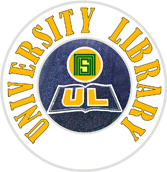Reflective teaching in higher education / Paul Ashwin [and ten others].
Material type: TextSeries: Reflective teachingPublication details: London : Bloomsbury, 2015Description: xiv, 416 pages ; 26 cmISBN: 9781441197559 (Paperback)Subject(s): College teaching | Reflective teachingLOC classification: LB2331 | .R43 2015
TextSeries: Reflective teachingPublication details: London : Bloomsbury, 2015Description: xiv, 416 pages ; 26 cmISBN: 9781441197559 (Paperback)Subject(s): College teaching | Reflective teachingLOC classification: LB2331 | .R43 2015 | Item type | Home library | Call number | Status | Notes | Date due | Barcode |
|---|---|---|---|---|---|---|
|
|
MMSU Laoag Campus Library | LB2331.R43 2015 CTE (Browse shelf(Opens below)) | Available | For circulation | 34004 |
Browsing MMSU Laoag Campus Library shelves Close shelf browser (Hides shelf browser)

|

|

|

|

|

|

|
||
| LB 2324 U54 2000 The university in transformation : global perspectives on the futures of the university / | LB 2328.5 P75 1999 Private Prometheus : private higher education and development in the 21st century / | LB2331 .N55 2016 CTE Teaching at its best : | LB2331.R43 2015 CTE Reflective teaching in higher education / | LB2331 S33 2017 LC Lib An Introduction to learning and teaching in higher education : | LB 2331 S94 2014 CTE McKeachie’s teaching tips : strategies, research, and theory for college and university teachers / | LB 2331 T47 2022 LCLib Teaching and learning in higher education / |
Includes bibliographical references and index.
pt. One Becoming reflective -- 1.Identity Who we are as teachers and who are our students? -- 2.Learning How do students develop their understanding? -- 3.Reflection How can we develop the quality of our teaching? -- 4.Principles What are the foundations of effective teaching and learning? -- pt. Two Creating conditions for learning -- 5.Contexts How do they shape us and how do we shape them? -- 6.Relationships How are we getting on together? -- 7.Engagement How does our engagement with teaching influence student learning? -- 8.Spaces How are we creating environments for learning? -- pt. Three Teaching for understanding -- 9.Curriculum What is to be taught and learned? -- 10.Planning How are we implementing curricula? -- 11.Teaching How can we develop strategies focused on student understanding? -- 12.Communication How can we support learning through dialogue? -- 13.Assessment How does it make a contribution to learning? --
Contents note continued: pt. Four Reflecting on consequences -- 14.Quality How are we monitoring and enhancing the quality of teaching and learning? -- 15.Inclusion How are we enabling opportunities? -- pt. Five Deepening understanding -- 16.Expertise How do we develop a career-long fascination with teaching? -- 17.Professionalism How does reflective? teaching contribute to society?.


There are no comments on this title.